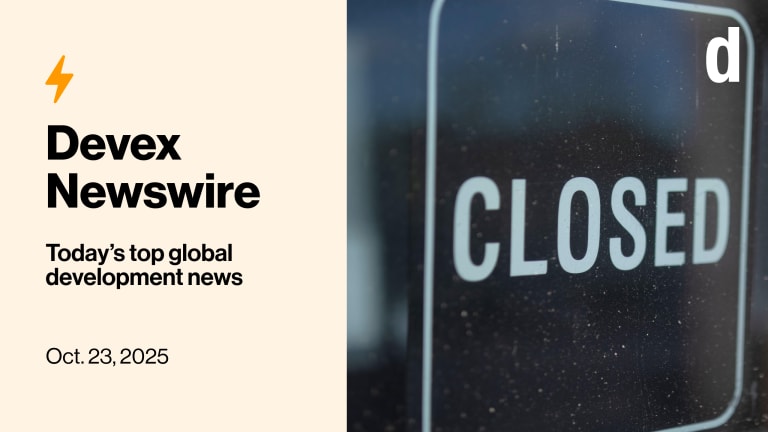
I attended the World Humanitarian Summit held last week, which fell as conflicts stretching from Nigeria to Yemen, and the collapse agriculture across east and southern Africa, have led to 60 million people being forced from their homes.
These people now live in camps and slums. Many have lost their lives in the Mediterranean or Sahara in search of stability in Europe.
The summit reached an encouraging consensus on pledges to make the aid system efficient and localized, but given the scale of the migration emergency — which in the last four days alone claimed the lives of 700 people crossing from Libya to Italy — the outcomes were disappointing.
With the commendable exception of Angela Merkel, none of the Group of Seven leaders attended, a fact not lost on U.N. Secretary General Ban Ki Moon, who expressed his acute disappointment at the absence of David Cameron and others.
International Development Secretary Justine Greening, who attended on behalf of the United Kingdom, said that she had used the humanitarian conference to “advance our U.K. objectives” and “reaffirm the U.K.’s commitment to compliance with international humanitarian law,” adding that she would hold the U.N. to the commitments made.
It is striking that Greening evokes international law and the need to scrutinize the U.N. when her government routinely ignores U.N. appeals for the U.K. to act on the European migration emergency and to adhere to international law.
World Humanitarian Summit: What was achieved and what work remains?
The World Humanitarian Summit had ambitions to reform an overstretched, underfunded relief system. Devex Associate Editor Elizabeth Dickinson shares the highlights from Istanbul.
Prior to the summit, Ban proposed a fairer approach to sharing the burden of refugees with host countries and a target to reduce internal displacement by 50 percent by 2030.
With a referendum to win, which the government allowed to be sold as a vote on immigration, the U.K. government accepts almost no refugees relative to the scale of the emergency. London routinely shuns U.N. appeals — as well as those from U.K. NGOs and civil society — to take on its fair share.
Following the EU security deal with Turkey to keep Asian and African migrants, along with the relative summer calm of the central Mediterranean, hundreds of thousands of people will attempt to make the journey from North Africa to Italy in the next few months.
But the attitude to the emergency from G-7 members such as the U.K. means that a decision on action has effectively been postponed until at least September, when the U.N. and the United States will hold events to discuss migration and refugee movements.
Between now and then, thousands will die at sea.
Meanwhile, the international community resolves only to “pursue a new approach” to address the emergency.
Britain needs more from its leaders than bland ministerial statements and piecemeal pledges to multilateral reform of the humanitarian system.
The scale of the migration emergency requires a commensurate response.
For starters, we must not allow thousands to drown by establishing immediate safe and legal routes for those arriving. Britain also must stop agitating the crisis with a self-centred policy that for example rearms Saudi Arabia in its criminal war with Yemen, which has destroyed the latter country and precipitated an out of sight refugee crisis in water-scarce East Africa.
But more fundamentally it requires us to acknowledge both our role in in fueling the emergency by destabilizing Afghanistan, Iraq, Libya and Yemen and by refusing to take meaningful action on climate change.
We must work with our European partners to promote a coherent foreign, defence and development policy that puts the interests of the many over the few.
We must take the fear of the “other” out of the debate about immigration and accept that resolving the crisis will be a win-win.
Doing so will materially benefit both the refugees and the societies and economies of European host nations.
Moreover, it will return dignity to the lives of the men and women escaping their troubled lands and end our race-to-the-bottom national politics on these emerging common challenges.
Join the Devex community and access more in-depth analysis, breaking news and business advice — and a host of other services — on international development, humanitarian aid and global health.






